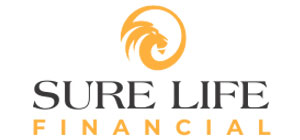Universal Life
- Home |
- Universal Life

Universal Life
Universal Life Insurance
Universal life insurance is also a type of permanent life insurance. This means that with universal life insurance, you get lifelong protection, provided you pay the premiums. Most universal life insurances also build cash value, but they generally offer more flexibility than whole life insurance.
For example, you can adjust premium payments, within limits. Some universal life insurances also let you select the investment options for your cash value. You can withdraw from or borrow against your policy’s cash value any time you want. Additionally, you can also use the cash value to purchase more protection or pay future premiums.
Universal life insurance mainly comes in three types:
Guaranteed Universal Life Insurance (GUL)
Guaranteed universal life insurances mean a guaranteed level premiums and death benefit. Which means they both will remain the same throughout. You pick an age when the coverage ends, such as age 90, 100, 110, etc. The higher this number, the greater the cost of insurance will be.
These policies do not build much value, if they build any at all. The upside is that guaranteed universal life insurance is cheaper than other types of universal life plans. However, remember, if you miss one payment, your policy could lapse. Since there is no or little cash value, the insurer cannot use it to cover a premium payment.
Indexed Universal Life Insurance (IUL)
These universal insurance policies provide lifelong protection and offer the freedom to increase or decrease premiums and the death benefit, within certain limits. The built-in investment component is usually linked to a stock market index.
An IUL policy comes with a minimum and maximum guaranteed rate of interest. So, even if the stock market tanks, you are not likely to lose all of your value. On the downside, you will have limited gains when the financial market is in a strong uptrend.
IUL policies are more complex and expensive than guaranteed universal life insurance.
Variable Universal Life Insurance (VUL)
A VUL policy also lets you adjust your premiums if your needs or financial situation changes. However, these policies require a closer monitoring than other types of universal life plans. That is because you pick the sub-accounts that impact your cash value growth. If you invest wisely, you can get good returns. Conversely, if your investment choices do not play out as expected, the cash value component might get completely wiped out.
Who should consider Universal Life Insurance?
Universal life insurance policies could make sense if:
- You want coverage that lasts as long as you live – A guaranteed universal life plan could work well for someone who primarily wants lifelong protection and is not so much interested in building cash value.
- You want more flexibility - Life insurance can change over time, as can your financial situation. Indexed and variable universal life insurance policies give you the freedom to tweak the premium payments, within pre-defined limits.
- You want more investment options – With universal life insurance, you can pick investment options that suit your level of risk tolerance and long-term financial goals. For example, variable universal plans let you invest the cash value in sub-accounts of your choice.
Universal Life Insurance Pros and Cons:
Let’s look at the advantages and disadvantages of a universal life policy.
| Pros | Cons |
| Lifelong coverage | Costs significantly more than term life insurance |
| Different types of universal life plans are available | High administrative fees |
| Policy builds cash value | It is possible to lose all of your cash value if you make poor investment choices |
| Flexibility to adjust premium payments and the death benefit | |
| Some universal life policies give you a certain level of control over your investments |
.


